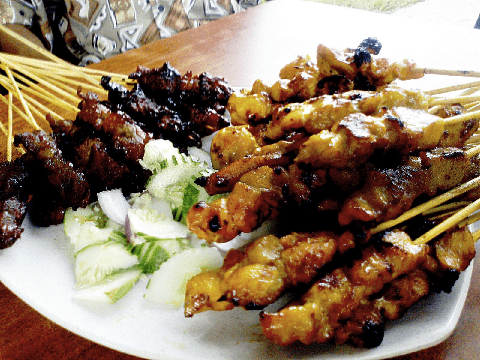The disappointing arrogance surrounding the ‘Kajang Move’.
I have refrained from commenting on this issue, which has been on-the-boil for almost a week after the now infamously dubbed ‘Kajang Move’ was unveiled by Parti Keadilan Rakyat (PKR) — engineered to allow the Opposition Leader Anwar Ibrahim to replace Khalid Ibrahim as the new Mentri Besar of Selangor. As with many other political commentators, I believe that this ‘strategy’ is a precipitation of the intense rivalry between the incumbent Khalid Ibrahim and PKR’s second-in-command, Azmin Ali.
I hope to make some original arguments against the ‘Kajang Move’. I will argue that this move is wrong because of the perceived failure of Khalid to act in the interests of the party, and how the defense of this move by PKR politicians, members, and aides are ultimately flawed. This is exactly the scenario that results when democracy is left to the politicians.
Firstly, a substantial camp within the PKR, aligned with Azmin, has made their disdain of Khalid very clear and public even from more than a year ago. It began with a tiff between the local party leaders and the state administration because of the latter’s refusal to channel funds for party activities as a reward to party loyalists. Some have argued that the position of the Mentri Besar is a political appointment, and must therefore also take into consideration the political party (and its supporters) that placed him in that position. However, it can also be argued it takes an elected state assemblyperson to fill that position and therefore, the person is also responsible to the state electorate that voted the party into power.
This presumption that the Mentri Besar and his state administration must make use of state resources (read: public resources) for ‘welfare activities’ disbursed using party machinery and loyalists reeks of the same foul stench that the Barisan Nasional-led Federal Government has been accused of in the past. Such habits breed lopsided, unhealthy and dependent patron-client relationships between the powers that be (state authorities, party leaders) and the general public (party workers, public electorate).
If PR wants to continue to ride on the platform of righteousness and people power, it must show itself to be above old forms of politics. While BN can only hope to be able to transform out of its old self to recapture the imagination of the new electorate, PR must be able to prove to the public that it will not play to the tune of old politics in order to gain the voters’ trust that PR is capable of the change it promises. This ‘Kajang Move’ is the betrayal of that trust.
The arrogance of politicians to think that the public will or should swallow whatever explanation made up to justify the resolution of internal party bickering by means of the ‘Kajang Move’ leads me to my second point. PKR strategic director, Rafizi Ramli, argued that this is the best available option for the party to face the alleged onslaught by UMNO after their own leadership struggle — and somehow by fielding Anwar for the state seat, it can “easily frustrate Umno’s game in Selangor especially with regards to racial and religious controversies”.
While many can appreciate Rafizi’s courage to take responsibility and shed light on the party’s justification for such a move, most remain unconvinced. Even though social media responses should not and cannot be taken as an accurate barometer of public opinion, voices on Facebook and Twitter have been largely critical and very much unconvinced that this is doing the public any good besides being a mere political move to quell internal bickering and party politics.
Instead of the party taking stock of its actions, PKR veep, N. Surendran, responded recently by saying, “Much of the criticism has been knee-jerk, poorly reasoned and displays a lack of understanding of party and electoral politics”.
I must say that I am very disappointed with such a response from the party’s top leadership to the public. By simply dismissing critics as ‘poorly reasoned’ and ‘display[ing] a lack of understanding of party and electoral politics’, it seems only a special privileged group is allowed to comment and participate in vocalising this issue.
This is a direct contradiction of arguments laid out by the very same party in the controversy involving the use of ‘Allah’ in Malay-language bibles or a plethora of other religious matters in the country, where the religious authorities and establishment warned the public from commenting on religious issues because they are not religious scholars or experts on these issues. A recent political opinion piece by Zurairi AR argued that such an excuse merely serves to shut off criticism — I would go a step further and claim that it also serves to discredit others from being able to participate in the conversation.
I have given a lot of thought about how to include multiple (and often times, conflicting) views in any political discourse and decision-making. When certain members of the group are discredited, excluded, and totally ignored from the conversation, regardless of the reason, this creates a situation where the agenda of the discourse and the final decision are dominated by a single group. This is clearly undemocratic.
Some may try to argue that certain groups are undeserving of being part of the conversation and therefore, should be ignored. Such groups include those who are not experts or knowledgeable of the issues involved, those set out to destroy the group from within by means of dissent and subversion, or even those who have no place nor standing to be part of the conversation.
By excluding these groups from deliberations of the very decision that will affect them (in this case, the genesis of the ‘Kajang Move’), it does not consider all opinions before a decision is made. This is undemocratic, and harmful.
This is what happens when democracy is left to the politicians.


Ok la….i bagik chance……Nice!